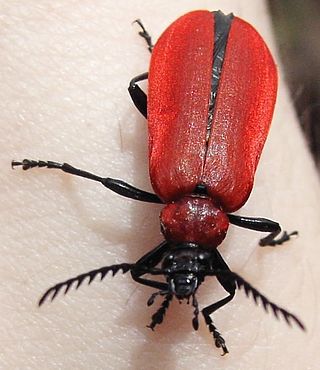Racial quotas in employment and education are numerical requirements or quotas for hiring, promoting, admitting and/or graduating members of a particular racial group. Racial quotas are often established as means of diminishing racial discrimination, addressing under-representation and evident racism against those racial groups or, the opposite, against the disadvantaged majority group. Conversely, quotas have also been used historically to promote discrimination against minority groups by limiting access to influential institutions in employment and education.
Numerus clausus is one of many methods used to limit the number of students who may study at a university. In many cases, the goal of the numerus clausus is simply to limit the number of students to the maximum feasible in some particularly sought-after areas of studies with an intent to keep a constant supply of qualified workforce and thus limit competition. In historical terms however, in some countries, numerus clausus policies were religious or racial quotas, both in intent and function.

Biological databases are libraries of biological sciences, collected from scientific experiments, published literature, high-throughput experiment technology, and computational analysis. They contain information from research areas including genomics, proteomics, metabolomics, microarray gene expression, and phylogenetics. Information contained in biological databases includes gene function, structure, localization, clinical effects of mutations as well as similarities of biological sequences and structures.

Sphaerites is a genus of beetles, the only genus in the family Sphaeritidae, sometimes called the false clown beetles. There are five known species, which are widespread in temperate areas of the Northern Hemisphere, found in forested or upland areas.
A Jewish quota was a discriminatory racial quota designed to limit or deny access for Jews to various institutions. Such quotas were widespread in the 19th and 20th centuries in developed countries and frequently present in higher education, often at prestigious universities.

Fire-coloured beetles is the common name for members of the tenebrionoid family Pyrochroidae. The family is found worldwide, and is most diverse at temperate latitudes. Adults measure 2–20 millimetres (0.079–0.787 in); larvae reach 35 millimetres (1.4 in). Larvae of Pyrochroinae are found associated with the bark of dead trees. They are probably mostly fungivorous, although they may become cannibalistic if too crowded.
The Catalogue of Life is an online database that provides an index of known species of animals, plants, fungi, and microorganisms. It was created in 2001 as a partnership between the global Species 2000 and the American Integrated Taxonomic Information System. The Catalogue is used by research scientists, citizen scientists, educators, and policy makers. The Catalogue is also used by the Biodiversity Heritage Library, the Barcode of Life Data System, Encyclopedia of Life, and the Global Biodiversity Information Facility. The Catalogue currently compiles data from 165 peer-reviewed taxonomic databases that are maintained by specialist institutions around the world. As of September 2022, the COL Checklist lists 2,067,951 of the world's 2.2m extant species known to taxonomists on the planet at present time.

The Encyclopedia of Life (EOL) is a free, online encyclopedia intended to document all of the 1.9 million living species known to science. It aggregates content to form "pages" for every known species. Content is compiled from existing trusted databases which are curated by experts and it calls on the assistance of non-experts throughout the world. It includes video, sound, images, graphics, information on characteristics, as well as text. In addition, the Encyclopedia incorporates species-related content from the Biodiversity Heritage Library, which digitizes millions of pages of printed literature from the world's major natural history libraries. The BHL digital content is indexed with the names of organisms using taxonomic indexing software developed by the Global Names project. The EOL project was initially backed by a US$50 million funding commitment, led by the MacArthur Foundation and the Sloan Foundation, who provided US$20 million and US$5 million, respectively. The additional US$25 million came from five cornerstone institutions—the Field Museum, Harvard University, the Marine Biological Laboratory, the Missouri Botanical Garden, and the Smithsonian Institution. The project was initially led by Jim Edwards and the development team by David Patterson. Today, participating institutions and individual donors continue to support EOL through financial contributions.

Coralliozetus is a genus of chaenopsid blennies mostly found in the eastern Pacific Ocean with one species (C. cardonae) occurring in the western Atlantic Ocean. Additionally, one species (C. clausus) is endemic to Cocos Island, Costa Rica.

Campiglossa is a genus of fruit flies in the family Tephritidae. There are at least 190 described species in Campiglossa.

Tomigerus clausus is a species of air-breathing land snail, a terrestrial pulmonate gastropod mollusk in the family Odontostomidae.

Elaphropus is a genus of ground beetles in the family Carabidae. There are at least 370 described species in Elaphropus.
Cantharidoscops clausus is a species of sea snail, a marine gastropod mollusk in the family Trochidae, the top snails.

iNaturalist is an American 501(c)(3) nonprofit social network of naturalists, citizen scientists, and biologists built on the concept of mapping and sharing observations of biodiversity across the globe. iNaturalist may be accessed via its website or from its mobile applications. iNaturalist includes an automated species identification tool, and users further assist each other in identifying organisms from photographs and even sound recordings. As of 9 July 2024, iNaturalist users had contributed approximately 197,660,888 observations of plants, animals, fungi, and other organisms worldwide, and 290,007 users were active in the previous 30 days.
The numerus clausus is a concept of property law which limits the number of types of right that the courts will acknowledge as having the character of "property". Several consequences follow from a right having the nature of property, as opposed to being a personal right, like a contract or obligation to pay compensation. Historically, the law has given privileged remedies to the holders of property rights over personal claims. These have included priority in payment from an insolvent debtor, a greater likelihood of being awarded specific performance, and security in remaining in possession of land or some other asset against termination of the right to possess. It holds especial importance in land law and corporate law.
Keroplatus is a genus of predatory fungus gnats in the family Keroplatidae. Several species are known to be bioluminescent.

Mycetophilinae is a subfamily of fungus gnats in the family Mycetophilidae. There are more than 30 genera and 2,000 described species in Mycetophilinae. There are two tribes, Exechiini and Mycetophilini.
Acaricoris is a genus of flat bugs in the family Aradidae. There are about eight described species in Acaricoris.
The principle of typicality is a general legal principle that takes on different meanings in contexts.
Creaserinus clausus is a species of cambarid crayfish endemic to the southern US states of Texas and Louisiana.










